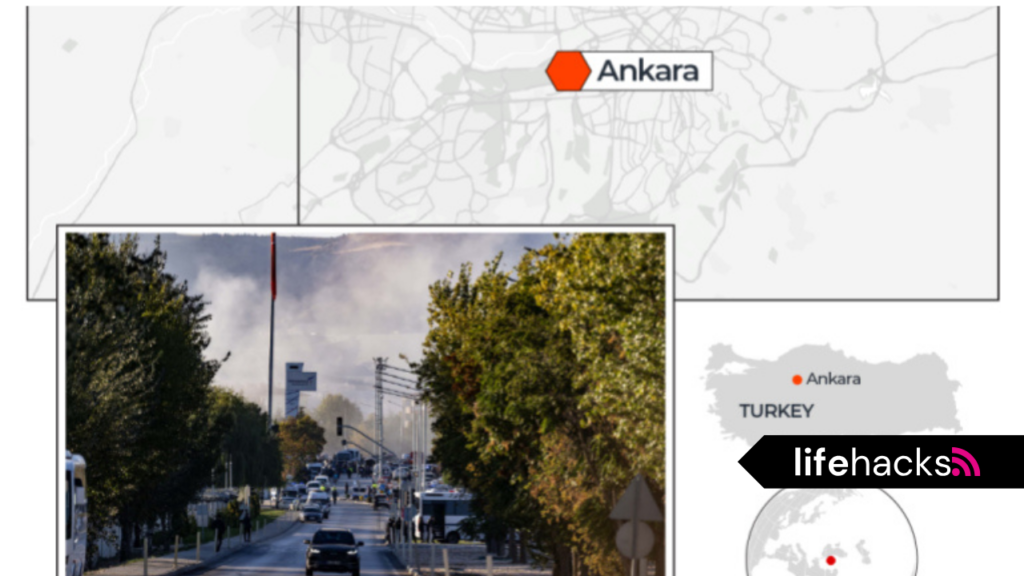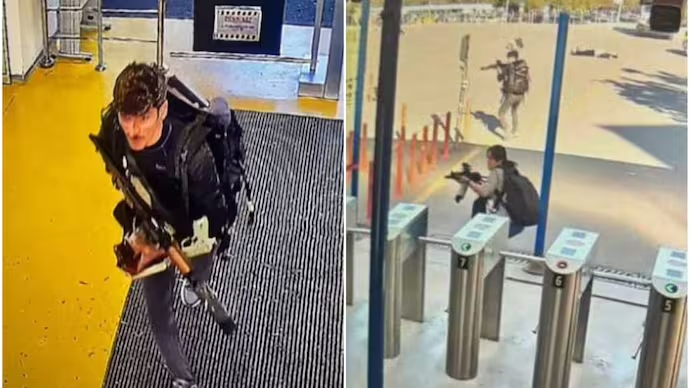Table of Contents
ToggleAt Least Five Killed, 22 Injured in Attack on Turkish Aerospace Industries

A total of at least five dead and 22 injured are reported in an attack on Wednesday, October 23, at Turkish Aerospace Industries (TAI) near Ankara. The attack took place in the Kahramankazan district, about 40 kilometers (25 miles) from the capital, at the time of a shift change. The authorities believe that Kurdish militants, particularly the Kurdistan Workers’ Party (PKK), may have carried out the attack. The Interior Minister Ali Yerlikaya has confirmed that a male and a female have been “neutralized” while indicating that investigations are still on, and preliminary findings have pointed out involvement of the PKK designated by Turkey, the US, and the EU as a terrorist organization.

Erdogan Condemns 'Vile Terror Attack'
The President of Turkey, Recep Tayyip Erdogan, who was in Russia on this occasion to meet President Vladimir Putin, lashed out against the attack and described the explosion in Istanbul as a “vile terror attack” that targeted the country’s defense sector. Erdogan said rapid action by security forces prevented greater damage, reassuring the public, “No terrorist organization will achieve its goals.”
Defense Minister Yasar Guler also indicated a likely PKK connection, vowing to continue Turkey’s operations to eliminate terrorist threats. The government has blamed the PKK for various attacks, attributing thousands of deaths to the decades-long conflict with the militant group.
Retaliatory Airstrikes on PKK Strongholds
After the attack, Turkey pounded northern Iraq and Syria with a wave of airstrikes against PKK positions. The retaliation hits against the group included 32 sites, with the Turkish military stating that it had “neutralized” a considerable number of militants. This is another turn in the spiral that was long at work and testifies to the turbulent relations and Turkey’s firm decision to quash Kurdish militancy across its borders.
Details Emerge from the TAI Headquarters Assault
It was a terror attack in which the two armed men neared the gate at TAI, shooting and causing explosions. Videos on social media showed chaotic scenes with badly damaged facilities as emergency responders rushed to the scene. Victims reportedly included one taxi driver whom the attackers killed for his car to reach the aerospace firm, while the rest were identified as employees of TAI. Again, the attack raised questions over security around installations with defense-related tasks-the TAI manufactures military aircraft and other defense equipment.
Also Recommended Read : Drone strike launched toward Benjamin Netanyahu’s home, Israel says; no injuries reported
Information Blackout and Online Restrictions
But in retaliation, Turkey banned broadcasting the assault; it restricted access to social media sites, including Facebook, YouTube, and X, formerly known as Twitter. Conventionally, the reason the authorities point to for putting such a ban in place is terrorist propaganda or spreading misinformation. The head of the Radio and Television Supreme Council called on people to stay away from posting any material related to the attack, as this would amount to helping terrorism.
Impact on Turkey's Defense Industry
This news comes as a big blow to the defense sector of Turkey, which has been aggressively working on augmenting its military capability and becoming less dependent upon foreign arms suppliers. Turkish Aerospace Industries belongs to the key infrastructure of Turkey’s defense and is involved in the development and modernization of military aircraft, including that of F-16 fighter jets.
While the attack at Turkish Aerospace Industries brought about a resonance of the hazardous militant groups like PKK, it cost precious lives. Bombing in Iraq and Syria against what is deemed the strongholds of the outlawed group by Turkey kept the nation on its toes toward further escalation. The incident underlines some very complex security challenges for Turkey, especially when the country pegs its hope on the defense industry in terms of its military ambitions. For that not to happen again because of national interests, the way forward should ensure continued vigilance, with improved security arrangements at critical facilities.